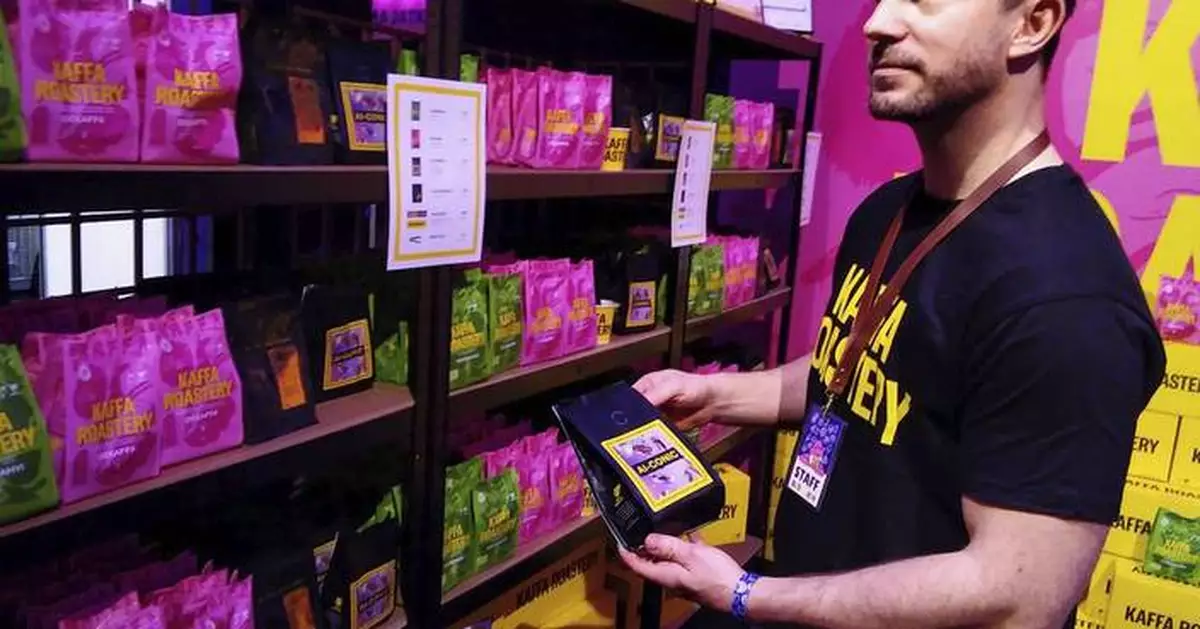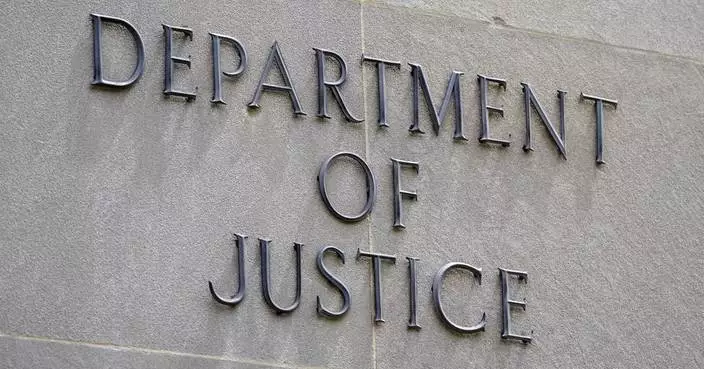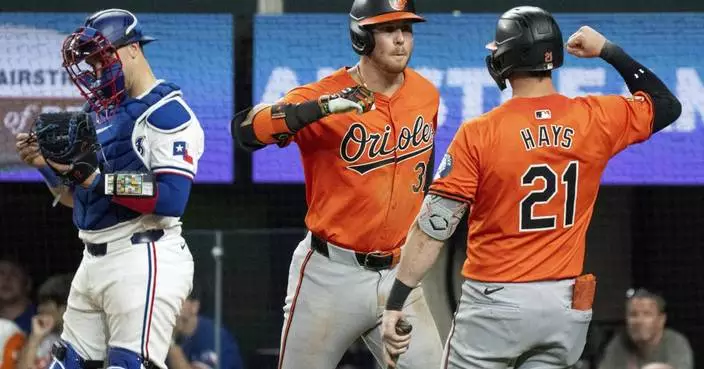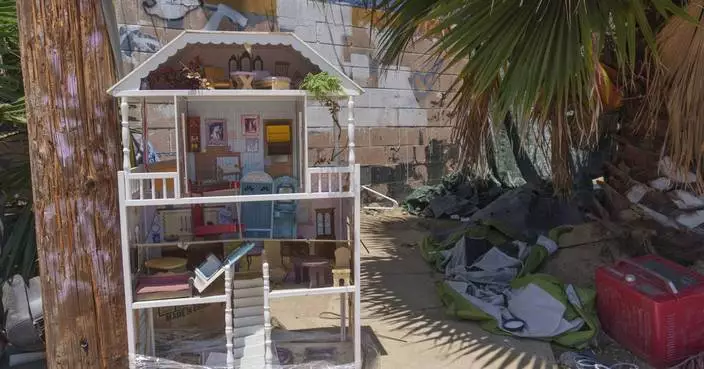HELSINKI (AP) — An artisan roastery based in the Finnish capital has introduced a coffee blend that has been developed by artificial intelligence in a trial in which it's hoped that technology can ease the workload in a sector that traditionally prides itself on manual work.
It is only apt that the Helsinki-based Kaffa Roastery’s “AI-conic” blend was launched this week in Finland, a Nordic nation of 5.6 million that consumes the most coffee in the world at 12 kilograms per capita annually, according to the International Coffee Organization.
The blend — an AI-picked mixture with four types of beans dominated by Brazil’s velvety Fazenda Pinhal — is the end result of a joint project by Kaffa, Finland’s third-biggest coffee roastery, and local AI consultancy Elev.
“Leveraging models akin to ChatGPT and Copilot, the AI was tasked with crafting a blend that would ideally suit coffee enthusiasts’ tastes, pushing the boundaries of conventional flavor combinations," Elev said.
Kaffa Roastery’s managing director and founder Svante Hampf told The Associated Press on Saturday that the two partners wanted to trial how AI and its different tools could be of help in coffee roasting, a traditional artisan profession highly valued in Finland.
“We basically gave descriptions of all our coffee types and their flavors to AI and instructed it to create a new exciting blend,” said Hampf, while showcasing “AI-conic” at the Helsinki Coffee Festival that annually brings together roasteries and coffee aficionados.
In addition to coming up with its chosen mixture of beans from Brazil, Colombia, Ethiopia and Guatemala, AI created the coffee package label and a detailed taste description saying “AI-conic” is “a well balanced blend of sweetness and ripe fruit.”
Hampf acknowledged he was surprised that AI “somewhat weirdly” chose to make the blend out of four different type of coffee beans, rather than the usual two or three which allows distinction in taste between flavors from different origins.
After the first test roasting and blind testing, Kaffa’s coffee experts agreed, however, that the tech-assisted blend was perfect, and there was no need for human adjustments.
According to Elev’s spokesman Antti Merilehto “AI-conic is a tangible example of how AI can introduce new perspectives to seasoned professionals” while offering coffee lovers new taste experiences.
Kaffa Roastery hopes the trial serves as an opener of dialogue between coffee professionals of things to come in the future in Finland, a nation that has both a strong coffee culture and a passion for technology with a flourishing startup scene.
“This (trial) was the first step in seeing how AI could help us in the future,” Hampf said, adding the project brought smoothly together “the artisan skills of a roastery” and AI-provided data. “I think AI has plenty to offer us in the long run. We are particularly impressed of the coffee taste descriptions it created.”
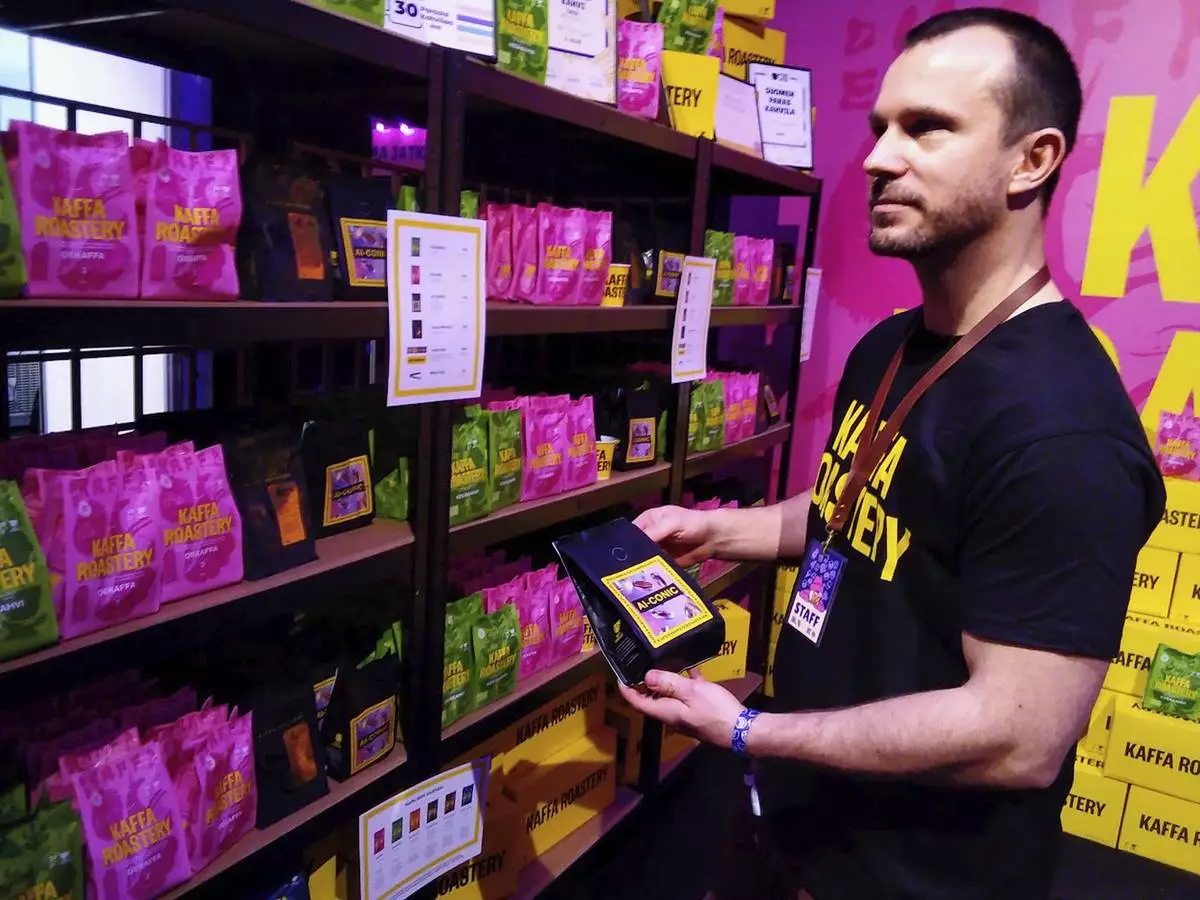
Kaffa Roastery's founder Svante Hampf shows package of "AI-conic" coffee blend generated by artificial intelligence in Helsinki, Finland, Friday April 19, 2024. Kaffa, an artisan roastery based in the Finnish capital has introduced a coffee blend that has been developed by artificial intelligence in a trial in which it's hoped that technology can ease the workload in a sector that traditionally prides itself on manual work. (AP Photo/Jari Tanner)


